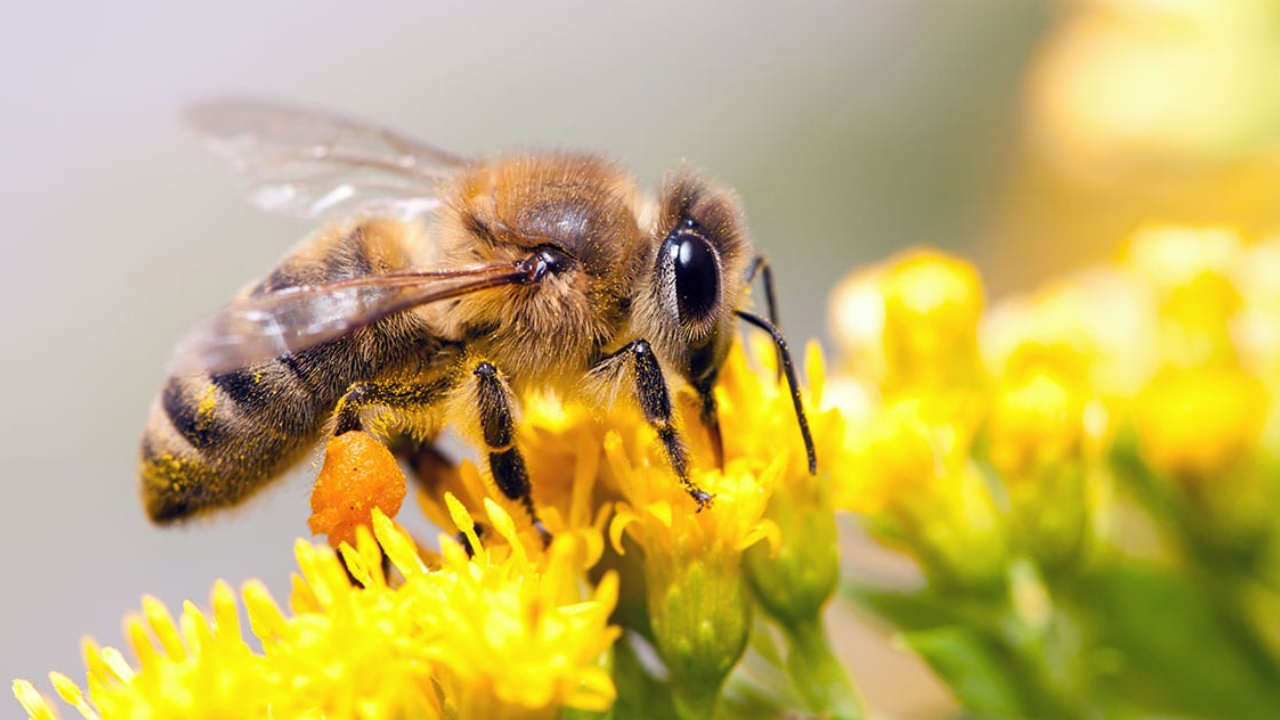Bees are essential for pollination, which helps many plants and crops reproduce.
These hardworking pollinators contribute over $15 billion to the value of crop production each year, making them critical for agriculture and maintaining a healthy ecosystem.
While bees are beneficial to the environment, they can sometimes build nests in unwanted spots like chimneys or under decks.
Although you can’t stop bees from searching for food and shelter, you can gently guide them to more suitable areas using natural methods. Here are some expert-backed tips to help keep bees away from your yard.
Meet the Experts
- Mary Jo Norris – A beekeeper with 12 years of experience and co-owner of Back Ridge Bee Farm & Supply.
- Judith Stanton – Former president of the Maine State Beekeepers Association and winner of the 2024-2025 Maine Beekeeper of the Year award.
Keep Sugary Drinks Covered
Mary Jo Norris advises keeping sugary drinks closed or covered when outdoors, especially during hot summer months.
If there’s not enough rainfall, flowers produce less nectar, leaving bees searching for alternative food sources, including sugary drinks.
Tip: Honey bees feed on nectar and pollen, but yellow jackets and wasps are attracted to meat and other food items. Be cautious when eating outside.
Use Bee-Proof Hummingbird Feeders
Honey bees are often drawn to hummingbird feeders when food is scarce. Norris recommends using feeders with small holes that only hummingbirds can access, preventing bees from getting to the nectar.
Place feeders away from decks and porches to reduce bee activity in those areas.
Be Mindful of What You Plant
Certain plants, such as honeysuckle, hibiscus, barberry, butterfly bush, willow, and button bush, attract pollinators.
Norris suggests planting these bee-attracting shrubs away from frequently used areas like decks and porches, especially if you have allergies.
Tip: Contact your local cooperative extension to learn which plants in your region attract bees and plan your garden layout accordingly.
Call a Local Beekeeper
If a swarm of honey bees settles around your home, such as in the eaves or walls, Norris suggests contacting a local beekeeping business or your State Beekeepers Association.
Many beekeepers will safely remove and relocate the hive, sometimes for free, though some cases may involve carpentry work to prevent future swarms.
Secure Your Eaves
Eaves—the lower edges of a roof—can be inviting for bees if not properly sealed. Norris advises checking for holes or rotting areas in the siding and eaves of your house.
If you spot weak spots, repair them promptly to prevent bees from nesting. A carpenter can assist with repairs if needed.
Tip: If a swarm settles in your yard on a tree or bush, give them space. They are usually resting temporarily before moving to a new location.
Cover Openings with Hardware Cloth
Judith Stanton recommends sealing off entry points to your home using 1/8-inch-thick hardware cloth. Bees often enter through openings in walls, soffits, eaves, and chimneys.
Covering these areas with hardware cloth will prevent bees from getting inside.
Provide Drinking Water
If bees are drinking from your swimming pool, Stanton suggests setting up an alternative water source, like a bird bath, away from the pool.
Adding a small amount of salt to the water will provide minerals that bees need, encouraging them to use the bird bath instead.
Use Peppermint Oil Spray
Bees dislike the scent of peppermint. Mix water and a few drops of peppermint oil in a spray bottle, then spray around porches and decks.
Reapply after rain to maintain its effectiveness.
Grow Bee-Repelling Plants
Certain plants can naturally keep bees away while adding beauty to your yard.
These include peppermint, garlic, citronella, cloves, eucalyptus, neem, basil, wormwood, lemongrass, and marigolds. If planting isn’t an option, try burning citronella candles instead.
Use Vinegar
Vinegar is a natural bee deterrent that won’t harm bees or the environment.
Mix equal parts of water and vinegar in a spray bottle and apply it to areas where you want to keep bees away. Reapply after rain for lasting results.
Following these natural methods can help you keep bees away from unwanted areas without harming them, ensuring a balanced and bee-friendly environment.
Disclaimer- Our team has thoroughly fact-checked this article to ensure its accuracy and maintain its credibility. We are committed to providing honest and reliable content for our readers.

